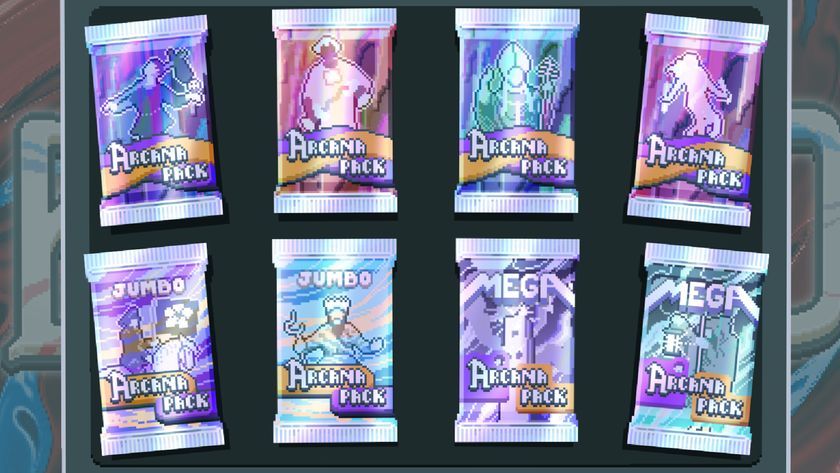3D fighters vs 2D fighters - Great Debate
Which fighting format reigns supreme?
Dimensional dispute

This match-up sees Justin Towell (1-0-0) battling on behalf of 3D fighters, while Lucas (0-1-0) sings the praises of 2D brawling. Which fighting game sub-genre is better? Its time for the great debate.
Justin says: 3D allows for spectacular environmental traversal
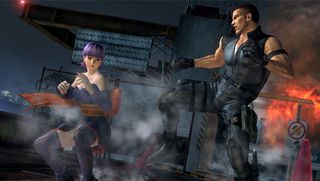
Justin: Just look at Dead or Alive 5 as you knock your opponent from the edge of a suspended platform. They dangle precariously before you kick them in the face and they fall, plummeting down into the middle of a car crash (that ends with an explosion of course) before the bout continues on the ground like nothing happened. No 2D game has anything like that in it. It's simply beyond the genre's letterbox play fields.
Lucas: Thats all well and good, but in the end, its just a gimmick. Id reckon I get the same amount of excitement watching someone get uppercutted through the ceiling in Mortal Kombat; the payoff (a new backdrop and some extra brutality) is pretty much the same. Id also imagine that those environmental cutscenes go from edge-of-your-seat awesome to flat-out annoying after youve seen them 500+ times.
Lucas says: 2D is more intuitive

Lucas: By now, everyone should know the input for a fireball, or how to bust out an anti-air shoryuken. These Street Fighter commands, alongside charge moves, have become universal staples in 2D fighters, and if youre playing a recent one for the first time, you can bet that trying these out will get results. But 3D fighters move lists are either mundane or overly complex, with very little wiggle room between braindead-easy button-plus-direction attacks and absurd, finger-straining movestrings. Its like starting from square one every time you want to try out a new character.
Justin: Quarter-circles are cliquey; 3D fighting control schemes are not. As I pointed out in my editorial about how Virtua Fighter 5: Final Showdown is the best fighting game of this generation, theres nothing more intuitive in the genre than a "block/punch/kick" three button control system. The opportunities for timing and skilful play are the complex bits (which are dependent only on your own imagination), not wrestling with constant blister-baiting quarter-circle or dragon-punch control inputs. 3D fighters remove as many barriers to entry as possible without sacrificing depth--Tekken aside, that usually includes shunning ludicrous movestrings.
Justin says: 3D allows for dodging
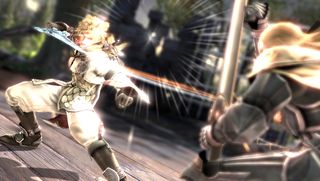
Justin: Its true that some 2D games have roll moves that give the impression the character has rolled around an attack or their opponent. But in a true 3D ring, that extra dimension of movement yields a wealth of new tactical options. Look at Soulcalibur V, for instance. Sidestepping around a vertical attack is incredibly satisfying. And it doesnt even need to impact intuitive control. Soulcalibur just adds in a horizontal attack button that will catch any side-stepping opponent. Its just a more satisfying and natural-moving fight, not to mention the chance to win by ring-out.
Lucas: This cant be just me: Half the time I try to dodge away from the camera in a 3D fighter, my character interprets my upwards double-tapping as a cue to jump, resulting in a painful chest-stabbing with a massive broadsword. Plus, some moves seem to hit in a wide radius for seemingly no reason, and can or cannot be dodged based on invisible circumstances. Thats just not fun, from either the player or spectator sides.
Sign up to the 12DOVE Newsletter
Weekly digests, tales from the communities you love, and more
Lucas says: 2D lets you fight in the air
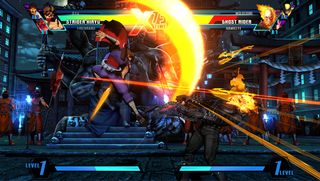
Lucas: When it comes to jumping, nearly every 3D fighter is a complete joke. You either pitifully hop off the ground or float like youre on the moon, and neither leap feels responsive or satisfying. All the air-battling antics are reserved for 2D fighters, where jumping is crucial for creating or closing distance between you and the opponent. Plus, youll never see the kinds of astounding, hundred-hit air juggles of Ultimate Marvel vs. Capcom 3 in a landlocked game like Soulcalibur.
Justin: Theres a reason why Virtua Fighter 2s ludicrous jumps arent in the game any more (even though landing an aerial backwards kick in your opponents face was brutally awesome). But that doesnt mean floating combos cant still be amazing. Theres a lot to be said for keeping your opponent airborne for as long as possible in Virtua Fighter, even if your own feet are still firmly planted on the ground. And Kage can toss his opponent high into the sky then catch them on the way down. Thats better than UMvC3s near-infinite tag air combos which make most online bouts no fun at all.
Justin says: 3D animation is better

Justin: I admit true 2D games with hand-drawn artwork can look beautiful. But a well-animated 3D game has so much more realism in its movement. At its best, 3D fighting genuinely looks like two real people having a fight. Theres obviously some blurring between genres with the likes of Super Street Fighter IV. Its 3D character models are brilliantly animated. But even that game has a noticeable staccato movement as individual moves play out like a traditional 2D fighter (deliberately for the series own authenticity), without the free-flowing transitions between keyframes of true 3D fighters.
Lucas: Its hard to sell photo-realistic graphics when the physics dont back them up: Characters in Virtua Fighter can soar 40 feet into the air, or bounce a few feet off the ground when bodyslammed. 2D graphics allow for infinitely more flair--bizarre pugilists like Skullgirls Double or BlazBlues Arakune wouldnt look nearly as cool if they were forced to occupy polygonal 3D space. Plus, I dont want to live in a world where every rendered fighter looks like an extra from Final Fantasy: The Spirits Within.
Lucas says: 2D fighters have a larger aggregate community

Lucas: The fact of the matter is, more fighting game players have dedicated themselves to 2D games. That means no disrespect to those dedicated to the 3D fighting scene, but theyve become such an elite (not elitist) group that breaking into the scene as a newcomer can prove nigh-impossible. With that smaller playerbase comes less online discussion, and in turn, less dissemination of new technology, strategies, and combos. Bigger isnt always better, but it speaks volumes that every headlining fighter on the wildly popular Shoryuken homepage is 2D.
Justin: Clever, Lucas! Name-dropping Shoryuken in your argument is a blatant and transparent attempt to garner votes from its community! Well, I think youll find the number of outspoken and active fans of 2D games falls well below the much higher number of gamers who grew up playing Tekken, Soulcalibur and Dead or Alive. Not to mention the equally fierce hardcore Sega fan community who know as well as I do that Virtua Fighter, along with Virtua Racing, kick-started modern, polygonal gaming. 3D FTW.
Justin says: Real 3D fighting can make for a unique experience

Justin: 3D fighting games like Virtua Fighter 5 and Soulcalibur V could still arguably be classed as 2.5D due to the way directional inputs are still the same as they would be if the Z-axis were removed. But true 3D fighters like Power Stone allow you to run around with analogue directional inputs, monkey-swinging across the ceiling and even jumping up onto the roof of the stage. Thats beyond 2D fighting games. It may dilute some of the basic "battle of wits" that close-up combat on a 2D plane provides, but in its place comes greater improvisation and imagination.
Lucas: Power Stone is great--but itll never gain traction as a competitive fighting game due to the lack of pinpoint balance that the 2D plane permits. If you want something apart from the norm, try a 2D tag-team fighter or a new mechanic like Street Fighter Alphas -isms. They keep a solid framework and introduce fresh rules, without throwing game balance to the wind in favor of frenetic (albeit fun) item-based chaos.
Lucas says: 2D has the purest space control
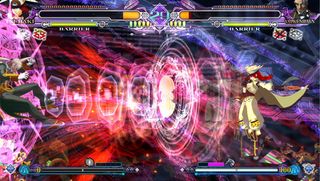
Lucas: Like chess or go, the highest-level mind games all revolve around space control. Though timing and reflexes come into play, fundamental things like footsies are still all about putting pressure on the opponent by utilizing space. And 2D includes a facet of space that 3D cant seem to muster: projectiles. Chucking fireballs is a feature in most every 2D fighter, and learning how to overcome a projectile spammer is one of 2D fightings great lessons. In 3D fighters, you either brawl up close or not at all (with the exclusion of hella-cheap laser moves), completely omitting an important dimension from the duel.
Justin: Pixel-perfect attack distance still applies in 3D. The extra dimension doesnt change that. But the best 3D fighting games are all about managing the space around you. The original Soulcaliburs 8-way Run feature also has its own specific moveset while youre circling, whether defensive or offensive depending on intuitive forward/backwards motions. Theres also nothing finer than being low on health, realizing youve got your back to the edge of the stage and throwing your opponent over your shoulder and out for the win. As for projectiles why not just bring a gun if youre going to start doing that?
Justin says: 1991
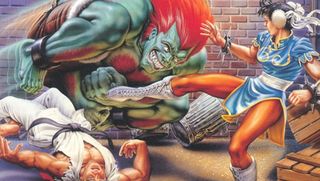
Justin: If 2Ds so great, why hasnt anyone significantly improved 2D gameplay over Street Fighter II? In 20 years?
Lucas: Thats like asking why nobodys reinvented the wheel lately.
Lucas says: Ring Outs suck
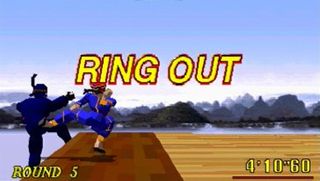
Lucas: Hooray, I forfeited a fight to the death because I tripped off the stage and fell in some ankle-deep water!
Justin: Well if youre dumb enough to fall off a large, mildly elevated platform, you dont deserve to win.
TIME OVER
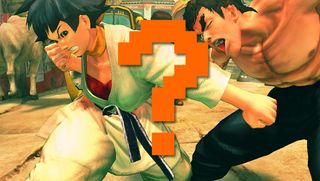
So, who do you side with? Justin and his z-axis sparring, or Lucas and his two-dimensional duels? Answer the poll and comment below to let us know who you think won this Great Debate.
Who do you think won the debate?
And if you want more Great Debates, check out western RPGs vs japanese RPGs and Mario vs. Sonic.
Great Debate pits two editors in a head-to-head battle to debate some of gamings hottest topics. Have a subject you want them to discuss? Let us know in the comments and well wrangle some editors to talk it over.
Lucas Sullivan is the former US Managing Editor of 12DOVE. Lucas spent seven years working for GR, starting as an Associate Editor in 2012 before climbing the ranks. He left us in 2019 to pursue a career path on the other side of the fence, joining 2K Games as a Global Content Manager. Lucas doesn't get to write about games like Borderlands and Mafia anymore, but he does get to help make and market them.
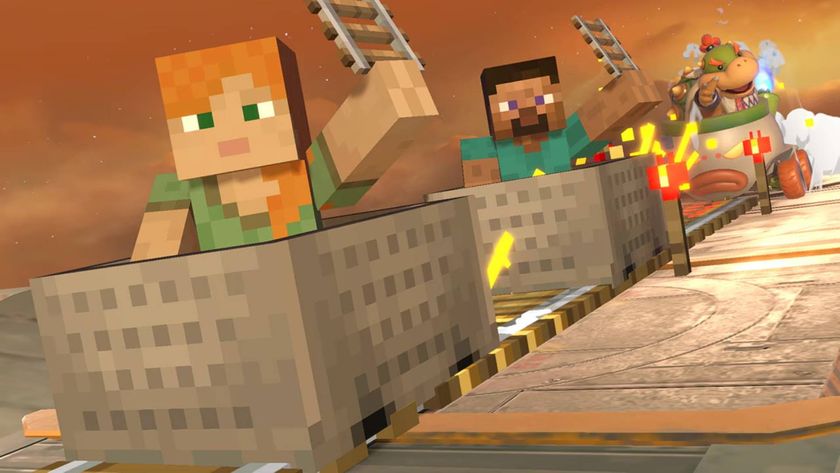
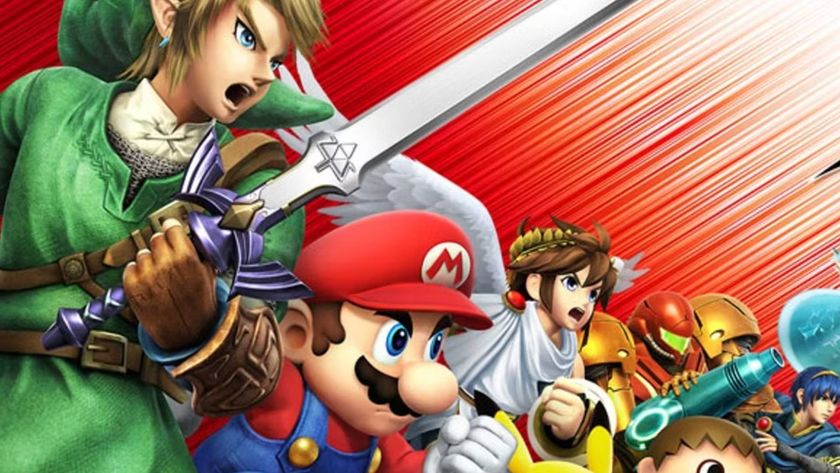
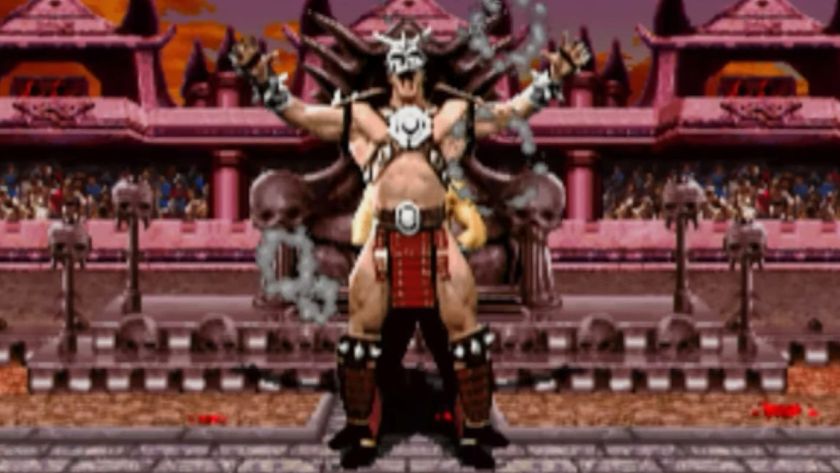
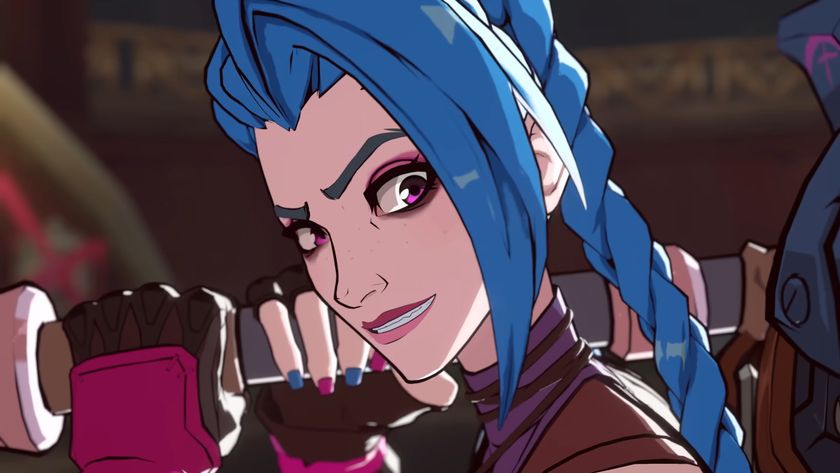

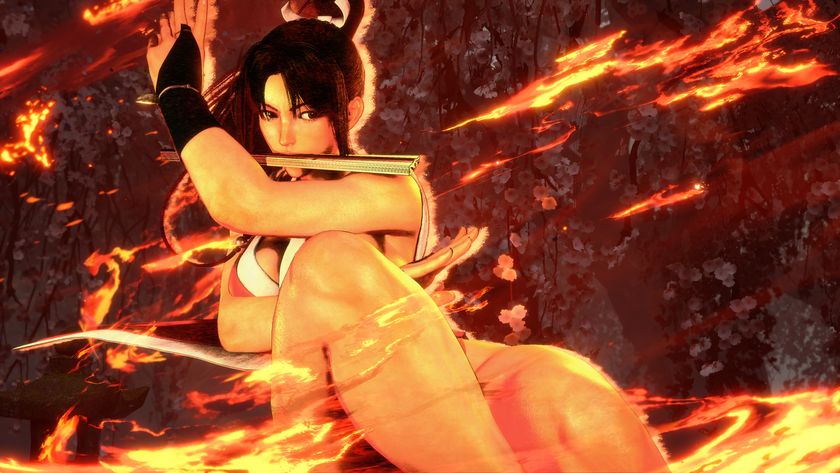

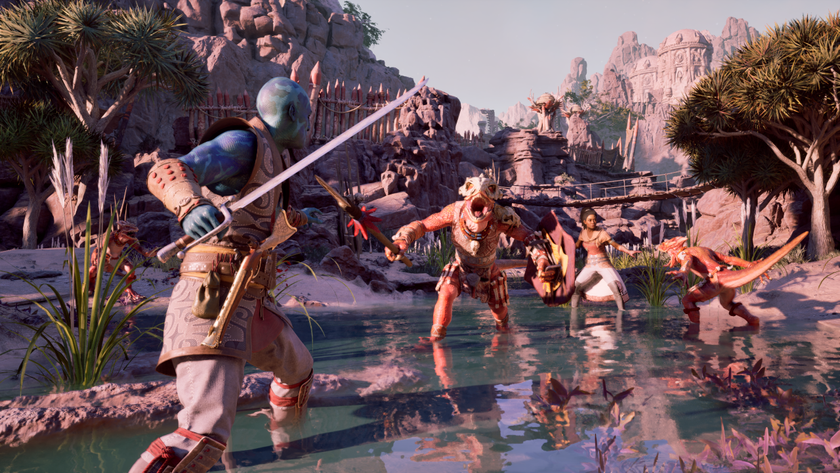

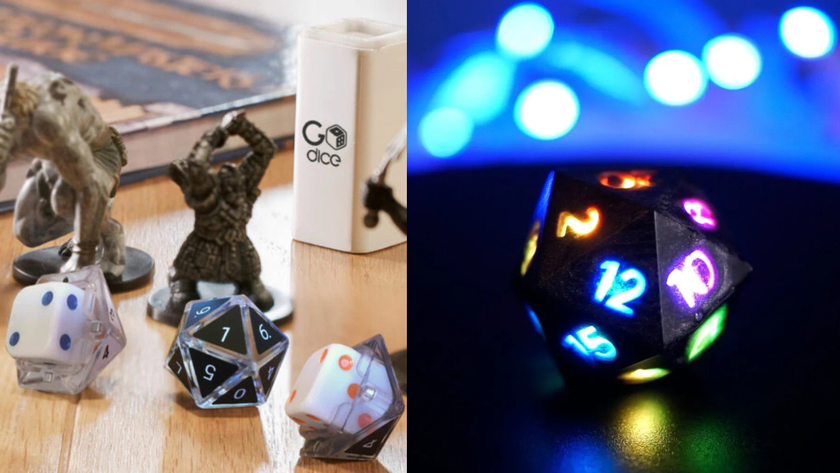
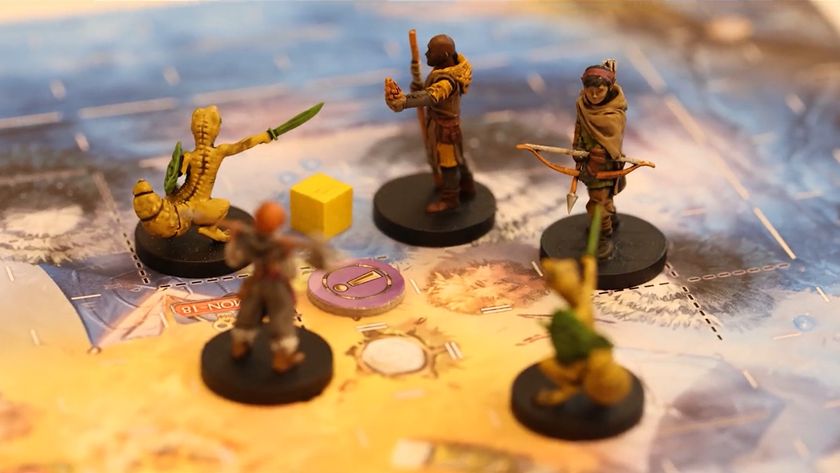


Super Smash Bros. Ultimate villain Minecraft Steve is the star of the "best Smash clip of all time," as genius player makes a literal Trojan Horse to destroy an unsuspecting opponent

Masahiro Sakurai says Super Smash Bros "might have died out" if not for late Nintendo president Satoru Iwata: "There's no doubt that he influenced me in many ways"

